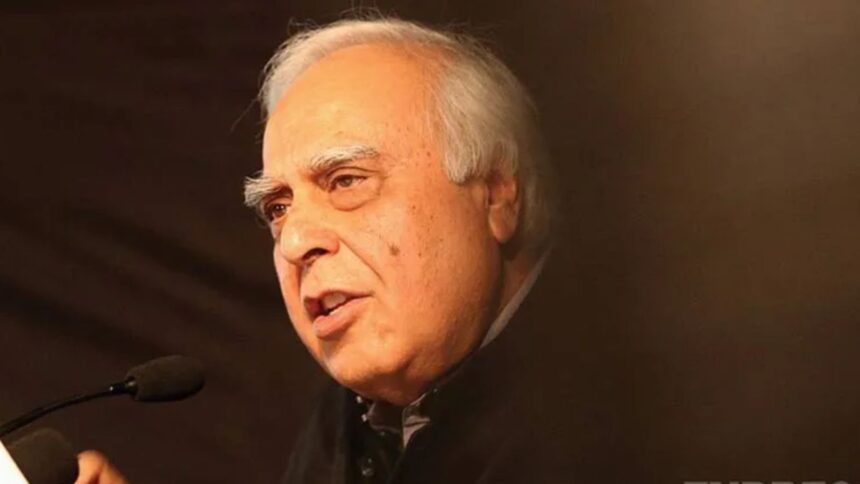As the Supreme Court began hearing the challenge against the amendments to the waqf law Tuesday, Senior Advocate Kapil Sibal told the top court that though the 2025 Act claims to be for protection of waqf, it was “in reality… designed to capture waqf through a process which is non-judicial… executive.”
Appearing for one of the petitioners, who have sought interim stay of the Waqf (Amendment) Act, 2025, Sibal told the top court, “Private properties are being taken away only because there is some dispute.”
“We don’t know what the nature of the dispute is. And when that dispute happens, a person is appointed, who is higher than the Collector. And that person will decide the dispute on his own. He will give a report. But by the time that report is given… we don’t have the time frame…. And while that report is pending, the property is taken away… without following any procedure. It’s no longer waqf property,” Sibal said.
With the person deciding the dispute being a government official, it is a case of “the government deciding its own dispute without any judicial procedure,” Sibal said.
Sibal also challenged the amended Act doing away with the concept of waqf-by-user prospectively. He said waqf-by-user was recognised by the Supreme Court in its Ayodhya judgment, which said it is a religious practice that has continued for hundreds of years. “How have they done away with it? They say that in the 1913 Act, the 1923 Act, the 1954 Act, and the later acts, there was a requirement for registration. And because you did not register, therefore, any waqf which is not registered will not be regarded as waqf. So many of these waqfs-by-users were created 100 years ago, 50 years ago, 200 years ago, 500 years ago, where will you get them?”
The court asked if it is a matter of fact that under the enactments of 1913, 1923, and so on, there is a mandatory requirement for registration? Sibal said the language used is, “shall be registered”. “But the consequences of non-registration were not set up in the end. The consequences of non-registration, this is the first time in the 2025 Act,” he said.
CJI B R Gavai said, “Merely using shall may not make it mandatory. Were there any consequences provided in those eyes for non-registration? If consequences are provided, then it will be mandatory.” Sibal responded that “from 1913 to 2023, though there was provision for registration of waqf, no consequences were provided for non-compliance except removal of the Mutawalli.”
Sibal also that Section 3E of the 2025 Act, which says waqfs cannot be created over Scheduled Tribe areas, violates the fundamental rights of Muslims who belong to Scheduled Tribes as they cannot create waqf using their lands. He also contested the provision allowing nomination of non-Muslims to the Central Waqf Council and the State Waqf Boards, saying it “is violative of Articles 25 and 26.”
The bench, which also comprised Justice Augustine G Masih, did not agree with Sibal’s submission that the amendment allows non-Muslims to be in the majority even in the Central Waqf Council, saying that only a maximum of two non-Muslims can be nominated, apart from the ex-officio members. “Even two is too many,” Sibal said, adding that persons from other religions are not allowed in boards for administering Hindu endowments.
Appearing for another petitioner, Senior Advocate A M Singhvi referred to Section 3(r) of the 2025 Act, which says that the person dedicating property as waqf must have been practising Islam for at least five years.
“Which other religion at the point of making a religious endowment, by whatever name called, is asked for proof of that religion, professing or practising?” he said.
He said this is directly contrary to Article 15 of the Constitution and the state is “discriminating by using Parliament to pass a law”.
He reported from the Delhi High Court and the Supreme Court of India during his first stint with The Indian Express in 2005-2006. Currently, in his second stint with The Indian Express, he reports from the Supreme Court and writes on topics related to law and the administration of justice. Legal reporting is his forte though he has extensive experience in political and community reporting too, having spent a decade as Kerala state correspondent, The Times of India and The Telegraph. He is a stickler for facts and has several impactful stories to his credit.








